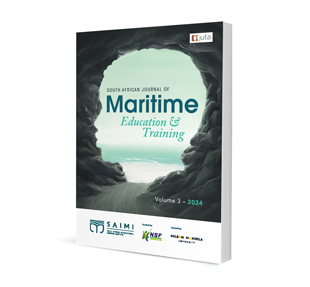
The Benefits of Teaching and Learning Maritime Economics as a Subject in South African High Schools

The Benefits of Teaching and Learning Maritime Economics as a Subject in South African High Schools
Author: Aubrey Nhlanhla Sosibo
ISSN: 2790-783X
Affiliations: Maritime Economics Educator, Lawhill Maritime Centre
Source: South African Journal of Maritime Education and Training, Volume 3 Issue 1, p. 1-14
https://doi.org/10.47348/SAJMET/2024/i1a1
Abstract
This study examines the benefits of teaching and learning maritime economics as a subject in South African high schools since official approval was given by the Minister of Basic Education in 2009. Initially piloted in 1995 at Simon’s Town School’s Lawhill Maritime Centre, offering maritime economics as a school subject has expanded to 34 high schools across four provinces, namely Eastern Cape, Gauteng, KwaZulu Natal, and Western Cape. Using a qualitative research methodology involving semi-structured interviews, the study reveals several significant benefits, including increased maritime career awareness, diversification of the previously white male-dominated maritime sector, enhanced critical thinking among youth, indirect contributions to economic growth and ensuring a steady supply of partially trained maritime professionals. The research confirms that maritime economics education supports South Africa’s mission to become a maritime nation, while aligning with Africa’s Integrated Marine Strategy (AIMS) 2050, Agenda 2063: The Africa We Want and the International Maritime Organization’s (IMO) mandate to ensure sufficient maritime professionals globally. The study concludes that offering maritime economics at the high school level creates exciting career opportunities, reduces youth unemployment and promotes general maritime awareness.